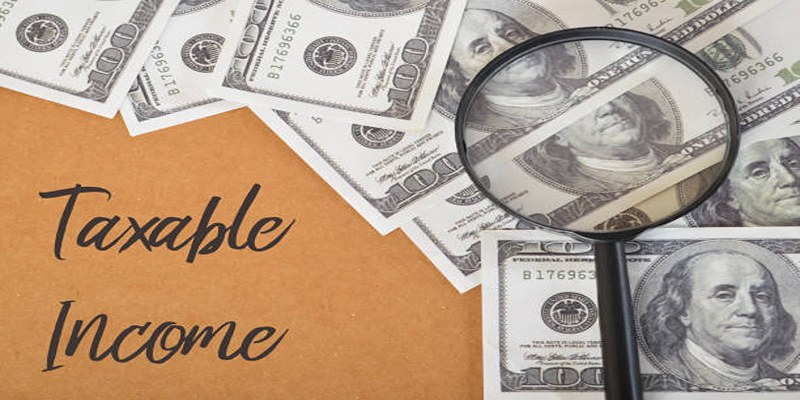What are Green Tax and ESG Tax Credits: What Accountants Need to Know
Mar 16, 2024 By Susan Kelly

The IRS delivers social, governance, and environmental tax credits that encourage ethical conduct and discourage ecologically harmful activities through what is known as a "green tax" to encourage individuals as well as companies to make physically favorable decisions.
Accountants are essential in guiding their customers through green taxes and ESG tax credits. For this reason, it's critical to comprehend the intricacies of these programs and how choosing environmentally friendly options might optimize tax benefits. An increasing number of organizations are using auditors to report on ESG and compliance, from finding green tax savings to staying up to date on ESG movements and legislation.
Many accounting firms are increasingly adding ESG products to their repertoire, whether it is for examining ESG-related disclosures, identifying possible audit concerns, or evaluating ESG prospects. Let's examine ESG tax credits comprehensively and discuss how accountants might benefit from this chance to assist customers with their green tax journeys.
Green Taxes: What are They?

Environmental taxes, sometimes referred to as green revenue taxes, are fiscal policy tools intended to punish environmentally harmful activity and encourage sustainable behavior. The goal of these levies is to encourage the use of eco-friendly alternatives in the economy.
How are levies on the environment determined? A number of factors, including the area of jurisdiction and the particular environmental harm being addressed, different environmental taxes are calculated. Taxing emissions, trash production, and energy use are common strategies.
The objective is to establish a relationship between the amount of taxes owed and the damage that a certain activity or company behavior causes to the environment. Governments can also encourage the decrease of the emission of greenhouse gases by using market-based tools like carbon pricing. In the United States, the environmental tax is computed by the IRS using Form 6627 on:
Petroleum, taxable chemicals and the relevant rates ozone-depleting chemicals (ODCs), imported products that employed ODCs as raw materials for product manufacturing or production, the floor stocks tax on ODCs, and taxable imported chemical components and the applicable rates are all included in this list.
Similar to this, excise taxes vary based on the particular tax and are levied on specific goods, services, and behaviors from importers, producers, retailers, and consumers. Sections 4661 taxes on chemists (in addition to ODCs) and the subsequent Section 4671 tax on international chemical compounds were reestablished on July 1, 2022, by virtue of the Construction Investment and Jobs Act.
Why Taxes are a Crucial Component of Strategy?
Gaining knowledge of the growing tax footprint is necessary before attempting to comprehend the broader company strategy and the transformation's base case. One crucial component of sustainable finance is taxation, which also includes credits, incentives, and profit distribution throughout the value chain.
Tax influences deal valuation and is a component of the net-zero transformation plan. The ESG transformation, in conjunction with enhanced openness and careful investigation from pertinent parties, necessitates tight coordination between the C-suite and the tax suite.
The revolutionary ESG tax breaks are applicable to all sectors. The Inflation-reduction Act of 2022 (IRA), which includes approximately $370 billion in spending packages and tax credits tied to climate change, constitutes the greatest dedication to clean energy in US history. In addition to conventional energy corporations, these rules aim to attract investment in cleaner energy from businesses in the construction, production, transportation, aviation, and financial services sectors.
For instance, the IRA increases and prolongs a number of tax credits and adds more than a dozen new ones to promote lower-carbon investments in real estate, transportation, manufacturing, and power generation. Many credits feature "bonus" clauses that, if the project satisfies specific employment quality and opportunity requirements, can raise the credit value by up to five times.
In addition to enabling tax-exempt organizations and taxpayers who have tiny revenue that is taxable or net losses to take use of these rules, the immediate reimbursement and interchangeability of tax incentives can offer alternative financing arrangements for these projects.
What Recent Changes Have Occurred?

Public reporting broken down by nation (CbCR) as half of the OECD's base-eroding and shift of profits (BEPS) program, which was created to resolve inconsistencies between tax structures in various jurisdictions, the G20 and OECD officially endorsed CbCR in 2015. The regulations require MNEs with a minimum annual worldwide revenue of 750 million to file an annual report with local tax authorities, which includes a summary of the group's financial statements broken down by jurisdiction.
An EU directive went into effect in December 2021, requiring multinational enterprises (MNEs) with worldwide sales of 750 million or more for two years in a row, regardless of whether their headquarters are in the EU, to make readily available on their websites details about their operations, including profits, employee count, and taxes paid in both EU and outside of the EU. By the middle of 2023, member nations must enact public CbCR legislation; the regulations will go into effect in 2024. As a result, the first report's deadline is 2025.
The European Council formally adopted the EU's Sustainability in Business Reporting Directive (CSRD) on November 28, 2022. Sustainability reporting will be required for over 50,000 businesses. This includes non-EU businesses that are listed on markets governed by the EU or that have subsidiaries doing business there. Reporting in accordance with the EU taxonomya mechanism that focuses investment on business ventures that align with the goals of the European Green Dealwill be mandatory under the CSRD.
The Bottom Line!
Begin by learning about the options that exist and how they might assist in covering the expenses associated with the switch to renewable energy and ESG investments.
In order to find ESG-related initiatives that make more economic sense after taxes or for which the site decision may alter in light of incentives, it may be helpful to coordinate those involved in the capital approval process. You may use modeling to determine how to commercialize the credits you earn or to analyze which alternative makes the most sense.

Road to Sustainability: Gas Cars vs. Hybrid vs. PHEVs
Jan 20, 2024
Road to Sustainability: Gas Cars vs. Hybrid vs. PHEVs provides a comprehensive comparison of traditional gas cars, hybrid vehicles, and Plug-in Hybrid Electric Vehicles (PHEVs). The document delves into the functionality of each vehicle type, their impacts on the environment, affordability, and driving experiences

Unlocking the Secrets of Travel Insurance: How It Works and Why You Need It
Dec 03, 2023
Is travel insurance your secret weapon for worry-free adventures? Learn how it safeguards your journey and why it's essential for every traveler.

All You Need to Know About Personal Finance
Nov 30, 2023
Discover the importance of personal finance and why it matters in your life. Explore the basics of managing money and setting financial goals.

What Are the Benefits of Life Insurance
Nov 14, 2023
The benefits of life insurance are enormous; it depends on the coverage amount; a larger amount reaps more benefits to a family than taking normal or general life insurance.

Sam's Club Mastercard vs. Walmart Rewards Mastercard
Oct 31, 2023
There is no annual fee for the Capital One® Walmart RewardsTM Mastercard® and no membership fees associated with obtaining this card. There is no annual fee for the Sam's Club® Mastercard®, but cardholders must be Sam's Club members. 27

Understanding the Gordon Growth Model (GGM): An In-depth Analysis
Jan 10, 2024
Explore the Gordon Growth Model, its applications in stock valuation and investment decisions, along with real-world examples and potential future trends.

Peerform Uncovered: A Comprehensive Review of Personal Loan Services
Feb 04, 2024
Explore Peerform's personal loan offerings, eligibility criteria, and borrowing experience in this comprehensive overview.

What is an Interest Bearing Checking Account
Dec 10, 2023
Get the convenience of a checking account and the benefit of earning interest with an Interest Bearing Checking Account. Learn about how this type of account works, why it might be ideal for you, and what Cash App does to help manage your funds now!

SBB High Yield Savings for Businesses: An In-Depth Analysis
Mar 18, 2024
Discover how SBB's High Yield Savings Account offers businesses the opportunity to maximize their interest earnings with no fees or minimum balance.

Early Bird Benefits: The Advantages of E-Filing Your Taxes Now
Mar 21, 2024
Explore the advantages of e-filing taxes early, from mitigating tax fraud risks to securing quicker refunds and maximizing financial health.

Navigating Tax Season: 10 Essential Tips for Managing Unemployment Income
Mar 21, 2024
Discover key insights on managing tax implications for unemployment income, including tips on deductions, reporting income, and minimizing tax burdens.

Maximizing Your Income: 9 Effective Strategies for Reducing Taxable Income
Mar 24, 2024
Discover effective ways to lower your taxable income, utilizing tax-deferred accounts, credits, and strategic planning, for financial growth.